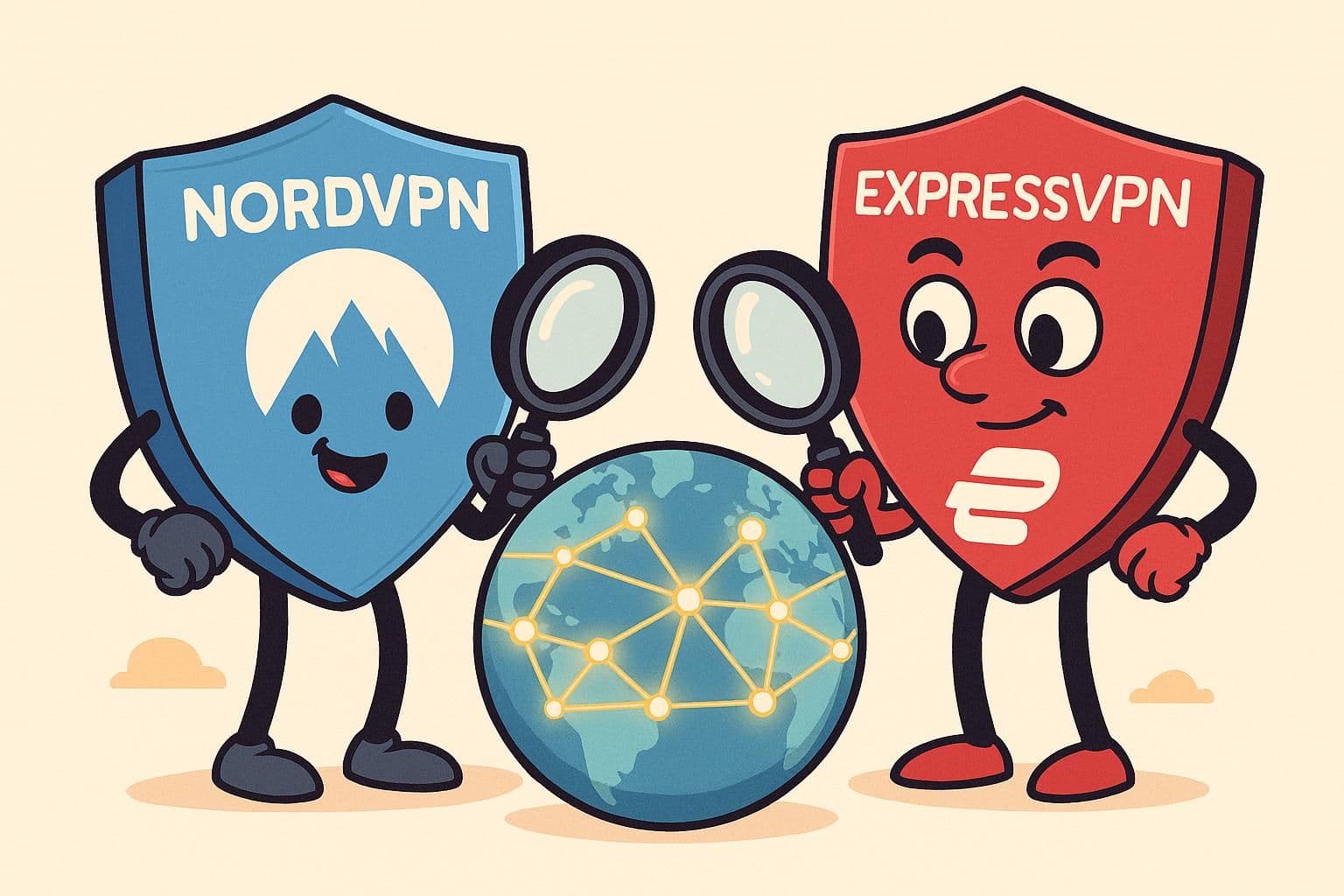Wix vs. Shopify: Which is Better for Your E-Store Success?
Wix vs. Shopify

Key takeaways:
When comparing Wix and Shopify for your e-store success, Wix stands out for its user-friendly interface and flexible design options, making it ideal for beginners and those prioritizing creative control. In contrast, Shopify excels with its robust e-commerce tools and extensive app marketplace, catering to businesses focused on scalability and comprehensive sales features.
Choosing the right e-commerce platform, such as advanced Shopify using Shopify apps and website builders, can make or break your online business. In the debate of Wix vs. Shopify, an ecommerce platform, each offers distinct advantages for your online store and could be the better choice depending on specific needs and goals related to commerce functionality and products. While Wix, a website builder, shines with its intuitive design capabilities for entrepreneurs seeking simplicity and aesthetic control for their online store, Shopify stands out as a powerhouse for those aiming to scale their operations with robust sales features, commerce functionality, and an extensive app marketplace. This comparison will delve into the core functionalities, including commerce functionality and products, ease of use, customization options through Shopify apps, pricing structures of Advanced Shopify, and support systems of both platforms to help you make an informed decision that aligns with your business strategy.
Ease of Use and Setup Process
Wix Interface
Wix's interface is known for its ease. Users enjoy using Shopify with a drag-and-drop editor that simplifies the setup process for apps on both advanced Shopify and Wix platforms. This feature allows even those with no technical background to quickly create a website page using the Wix editor and apps.
The platform offers various website templates, including advanced Shopify apps, each customizable via the page editor. You can add elements like text boxes, images, and buttons to your page by simply dragging them into place using editor apps and builders. The freedom to design a website without coding knowledge makes Wix stand out for beginners or users looking for simplicity with its user-friendly editor and apps, similar to Shopify.
![]()
Shopify Setup
Shopify takes a different approach to ease of use. It provides users with guided instructions from start to finish using the Shopify editor on the website and apps. This structured Shopify setup ensures you don't miss crucial steps in launching your online store website for your business with essential apps.
Even though it lacks a drag-and-drop editor like Wix, Shopify's methodical way keeps things clear and straightforward for your business website with its apps. New users can take advantage of the free trial period on the Shopify website to explore app features without financial commitment.
![]()
Launch Time
When comparing timeframes for launching a basic store, both Shopify and other platforms offer quick access but differ slightly in speed and available apps.
- Wix allows you to publish almost immediately after customization.
- Shopify, in comparison to Wix, might require additional time due to its more detailed setup process for apps and website.
However, this extra time spent on Shopify, in comparison to Wix, could result in a more polished website end product with potentially fewer issues down the line regarding apps, loading speed, and overall performance.
Pricing Structures and Value for Money
Entry-Level Costs
When evaluating Wix and Shopify for website comparison, the entry-level plan costs and apps are a critical factor. Wix offers a range of website plans, with the most basic tier being more affordable in comparison to Shopify's initial offering. This plan includes essential features like website hosting, an SSL certificate, and a Shopify vs Wix comparison at no additional cost.
However, Shopify's starting plan, while pricier, comes with a comprehensive set of e-commerce tools for website comparison not present in Wix’s base package. These tools, like Shopify and Wix, can be crucial for businesses focused on scaling quickly through website comparison.
Price Inclusions
The value within each website platform's pricing, such as Shopify and Wix, is determined by what is included in the comparison. Both Wix and Shopify include web hosting services in their plans, eliminating the need for separate hosting fees.
Both Shopify and Wix provide free SSL certificates to ensure customer transactions are secure. This feature adds significant value to Shopify and Wix platforms as it builds trust with customers without extra expenses.
Transaction Fees
An often-overlooked aspect when choosing between Wix and Shopify is transaction fees. Each sale made through your Shopify or Wix site may incur such fees.
Shopify charges these fees unless you use their payment gateway, whereas Wix does not charge any transaction fees regardless of the payment method used. Over time, this difference can have substantial financial implications for your business.
- Pros of Wix:
- No transaction fees across all plans.
- More affordable entry-level pricing.
- Cons of Wix:
- Fewer advanced e-commerce tools in Wix base plan compared to Shopify.
- Pros of Shopify:
- Robust e-commerce features even in entry-level plan.
- Cons of Shopify:
- Transaction fees apply if not using their payment system.
SEO Capabilities and Tools
Wix SEO
Wix offers SEO tools that cater to businesses looking to improve their online presence. Users can customize meta titles, descriptions, and URLs. They also benefit from the Wix SEO Wiz, a step-by-step guide for site optimization.
The Shopify and Wix platforms allow for easy insertion of alt text on images which enhances visual content discoverability. Integration with social media on platforms like Shopify and Wix is straightforward, improving content sharing capabilities. However, advanced users may find some limitations in deeper customization options with Shopify and Wix compared to other CMS platforms.
Shopify Features
Shopify shines with its built-in SEO features designed specifically for e-commerce websites. It automatically generates sitemap files and robots.txt for platforms like Shopify and Wix, streamlining the indexing process by search engines.
Product pages on Shopify are optimized with tags that help categorize items effectively. This Shopify feature simplifies navigation for customers while boosting SEO performance through better keyword targeting on Wix.
Ranking Potential
The choice between Wix or Shopify can impact your website's search engine ranking potential significantly. Both Shopify and Wix platforms offer basic SEO capabilities needed to rank well in search results but differ in their approach.
Wix suits those who run blogs or informational sites due to its user-friendly interface and ample design choices. Conversely, Shopify, unlike Wix, is tailored towards online stores requiring robust e-commerce functionalities that align with Google’s preference for fast-loading and mobile-optimized shopping sites.
To conclude this section on SEO, it's clear both website builders have strengths depending on your specific needs; whether you prioritize ease of use or specialized e-commerce features will guide your decision between Wix vs Shopify.
![]()
Customization and Design Flexibility
Wix Templates
Wix boasts a vast library of templates. Users find a wide range of Shopify and Wix designs that cater to various industries. The drag-and-drop builder makes customization straightforward. No need for coding knowledge here.
With Wix, you can choose from hundreds of pre-designed templates. They suit different business types and personal styles. Users appreciate the ease with which they can modify Shopify and Wix layouts using the intuitive interface.
Shopify Themes
Shopify's theme store presents professionally designed themes tailored for e-commerce. These shopify themes align well with brands looking to establish an online presence.
The Shopify platform offers both free and paid options in its theme store. Each theme is customizable to some degree, but advanced changes may require knowledge of Shopify's proprietary language, Liquid.
Design Limits
Both platforms have their design constraints without coding skills. Wix users sometimes hit barriers. Shopify merchants might struggle with intricate customizations beyond basic template settings.
To overcome these limits on either Shopify or Wix platforms, understanding HTML/CSS or hiring a developer could be necessary. However, both Shopify and Wix offer third-party integrations which add functionality and aesthetic elements without extensive coding.
E-Commerce Features and Inventory Management
Inventory Tracking
Inventory management is crucial for any ecommerce business. Wix and Shopify offer a straightforward inventory tracking system that allows merchants to monitor stock levels, set email alerts, and manage items across multiple channels. However, it may not be as robust as Shopify's solution, unlike Wix.
Shopify excels in this area with advanced inventory features. Merchants using Shopify can track stock counts, assign barcodes to products, and use detailed analytics to forecast demand. The platform also integrates seamlessly with Shopify and Wix for even more comprehensive inventory control.
Multi-Channel Integration
E-commerce businesses often sell across various platforms like Shopify and Wix beyond their online store. Both Wix and Shopify enable multi-channel sales integration. This feature lets merchants sell on social media, marketplaces like Amazon or eBay, Shopify, Wix, and in-person with POS systems.
Shopify stands out due to its dedicated Shopify apps that streamline the process of syncing your inventory across different sales channels effortlessly. With Wix, while there is support for multi-channel integration, the options are less extensive compared to Shopify's offerings.
Advanced Features
For many ecommerce businesses looking at Shopify and Wix ecommerce platform's advanced features can be a deciding factor. Abandoned cart recovery on Shopify and Wix is one such feature where both platforms shine but have different approaches.
Wix provides basic abandoned cart recovery tools within its ecommerce plans which allow you to send automated emails to customers who've left items in their carts. On the other hand, advanced Shopify plans offer more sophisticated solutions including customizable emails and detailed reports on cart abandonment trends which can help improve conversion rates significantly over time.
![]()
Payment and Checkout Options
Gateway Diversity
Wix and Shopify support various payment gateways. This allows customers to use their preferred payment methods. Wix offers a decent selection, including major credit cards and PayPal. However, Shopify stands out with over 100 payment gateways.
Merchants can choose the best Shopify or Wix platform fit for their target market. For example, while Wix might be sufficient for small businesses focused on domestic sales, Shopify's range is ideal for larger operations aiming at international markets.
Checkout Customization
Shopify excels in checkout customization options. Merchants can tailor the Shopify and Wix checkout process to match their brand's look and feel. They also have access to advanced features like Shopify cart recovery emails and Wix which help reduce abandoned carts.
On the other hand, Wix provides basic customization capabilities that cater well to smaller merchants who may not need complex solutions like Shopify but still desire a professional-looking checkout experience.
International Handling
Handling international payments is crucial for global commerce success. Here again, Shopify leads by supporting multiple currencies and providing localized shopping experiences through its premium features, unlike Wix.
This capacity ensures Shopify and Wix customers around the world enjoy seamless transactions in their local currency without facing high conversion charges or confusing pricing. Conversely, while Wix does offer multiple currency options, it lacks some of the more sophisticated tools that Shopify has developed specifically for handling global transactions efficiently.
Marketing and Sales Enhancement Tools
Email Integration
Wix and Shopify offer distinct email marketing capabilities. Wix provides a built-in email marketing solution, simplifying campaigns for users. Shopify integrates with major email services, offering flexibility.
Wix's editor allows businesses to create emails without leaving the platform. It offers Shopify and Wix templates that are easy to customize, fitting any brand's style. This integration helps in maintaining consistent communication with customers.
Shopify does not have an in-house tool but connects seamlessly with solutions like Mailchimp or Klaviyo. These tools give more advanced options for targeting and automation. Businesses can craft complex Shopify and Wix campaigns that respond to customer behaviors.
Upselling Features
Both Shopify and Wix platforms boast powerful tools for increasing average order value through upselling and cross-selling strategies.
Wix and Shopify have features that suggest related products on product pages or during checkout. These suggestions encourage customers to add more items to their carts, boosting sales figures.
Shopify and Wix excel here as well; they offer apps designed specifically for upselling and cross-selling techniques. Apps such as Bold Upsell on Shopify enable shop owners to present timed offers or bundle deals at crucial moments in the shopping journey.
Analytics Insight
Understanding marketing effectiveness is critical for online stores.
With Wix, users get basic analytics measures that track visitor behavior and campaign success rates directly from the dashboard. Insights into which products are viewed most often on Shopify and Wix can inform future marketing efforts.
Shopify goes further by providing detailed reports on every aspect of a store's performance including sales trends over time, conversion rates from specific traffic sources, or customer acquisition costs (CAC). Its fraud analysis feature, integrated with platforms like Shopify and Wix, helps protect businesses against fraudulent transactions—a valuable addition when considering overall ROI of your marketing strategy.
![]()
Support, Security, and Reliability
Customer Care
Wix and Shopify prioritize customer support. Wix offers multiple channels for assistance including email, phone, and a comprehensive help center. Users can find tutorials and community advice with ease.
Shopify takes pride in its 24/7 customer care. It provides live chat, email support, and a detailed knowledge base for Shopify and Wix. This ensures users receive help at any time.
Security Measures
Online stores need robust security to protect transactions. Both platforms, Shopify and Wix, offer strong security features but differ slightly in approach.
Wix uses secure servers to ensure data safety for website owners and their customers. It includes SSL certificates as standard across all Shopify and Wix sites which encrypts data transfers.
Shopify is known for its rigorous security protocols too. Every Shopify store comes with SSL encryption as well as compliance with PCI DSS standards. This means it meets the Shopify and Wix requirements needed to handle credit card information securely.
Uptime Performance
Reliable uptime is crucial for e-commerce success; both Wix and Shopify understand this.
Wix boasts an impressive uptime record keeping websites operational consistently throughout the year.
Shopify's performance is equally notable with high uptime statistics ensuring that stores are rarely down. This reliability gives Shopify and Wix business owners peace of mind knowing their online presence remains uninterrupted.
Scalability and Growth Potential
Traffic Handling
Shopify excels in handling high traffic volumes. It's built to support businesses like Shopify and Wix that experience sudden spikes in online activity. Shopify stores can withstand a huge number of visitors at any given time without compromising performance.
Wix, while suitable for smaller operations, may encounter difficulties with scalability when compared to Shopify. Its infrastructure is not as robust when facing large-scale traffic increases. This could lead to slower Shopify and Wix site speeds or even downtime during peak hours.
Upgrade Paths
For growing businesses, both Shopify and Wix offer upgrade options but differ in approach and functionality. Shopify provides a clear upgrade path with distinct plans catering to various business needs. As sales increase, moving from 'Basic' to 'Shopify' or 'Advanced' plans is straightforward.
Wix also has upgrade options but they are less tailored to e-commerce growth specifically compared to Shopify. The platform, unlike Shopify, offers more general website features like Wix rather than specialized e-commerce tools which might limit advanced functionality for larger stores.
Scaling Limitations
Scaling up on Wix may present limitations due to its simpler e-commerce tools and features compared to Shopify's extensive range of apps and integrations designed for scaling businesses.
On the other hand, although Shopify and Wix boast superior scalability features like multilingual capabilities and an extensive app market, they do come at a cost - higher plan prices as you scale up your operations throughout the year.
Summary
Wix and Shopify offer distinctive advantages tailored to varying business needs, with each platform excelling in aspects such as user-friendliness, pricing, SEO, customization, e-commerce tools, payment options, marketing features, support systems, and growth potential. The decision between Wix and Shopify hinges on the specific requirements and goals of your online venture. Wix may appeal more to beginners valuing ease of use and design freedom, while Shopify stands out for its robust e-commerce capabilities and scalability that cater to growing businesses.
To navigate this crucial choice for your Shopify or Wix online presence, consider the detailed insights provided on both platforms by Latenode. Assess your priorities, weigh the pros and cons of Shopify and Wix, and select the service that aligns best with your strategic direction. For further guidance or to start building your Shopify or Wix online store with confidence, reach out to a digital commerce expert at Latenode today. Their expertise in optimizing online platforms will ensure you make the most informed decision for your e-store's success.
Related articles:



